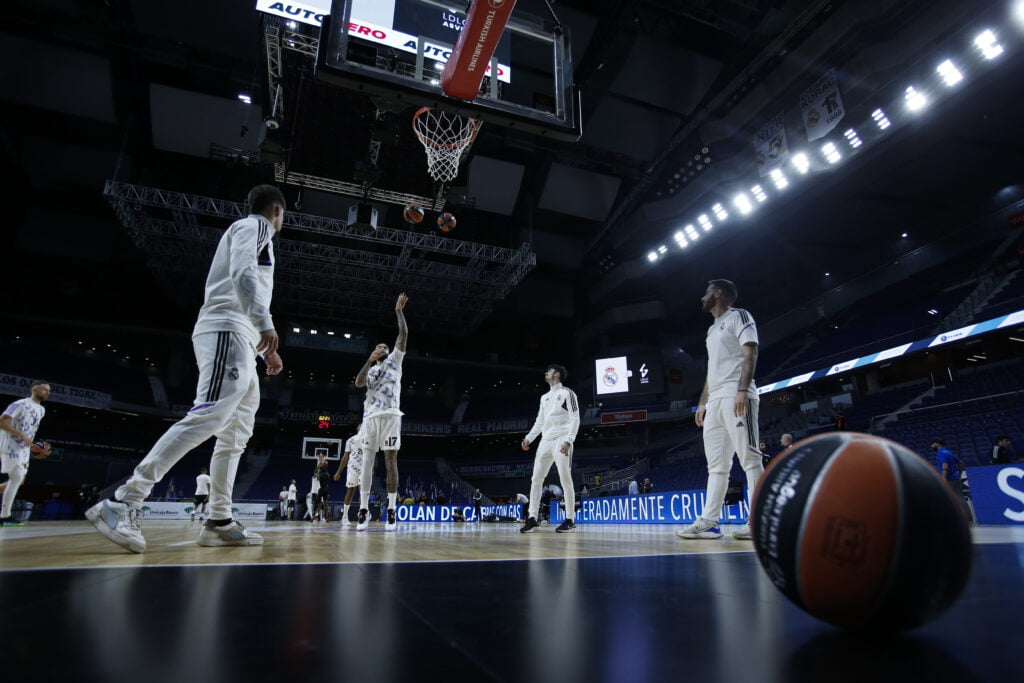Authors: Mar Rovira, Francesco Cuzzolin, Julio Calleja-Gonzalez, Igor Jukic, Baris Kocaoglu, Sergej M. Ostojic, Jaime Sampaio
Psychological flexibility is a key concept which has emerged in the current scientific literature around well-being and sports performance. In the sports world, athletes are constantly expected to perform at their best while managing a variety of challenging internal and external stimuli. In fact, they are expected to have the ability to cope with and regulate their cognitions, emotions, and bodily reactions, and to focus on their performance even in stressful situations (Gardner and Moore, 2004, 2007). Besides, they also need to learn how to deal with difficulties while pursuing value-based goals. Hence, this is why it is important to learn and use this skill.
In particular, psychological flexibility is defined as the ability to stay in contact with the present moment regardless of unpleasant thoughts, feelings, and bodily sensations, while choosing one’s behaviors based on the situation and personal values (Hayes et al.,2006). It involves acceptance and willingness to experience unwanted internal events to pursue values and goals important to the individual, without trying to change the frequency or form of these events. In other words, it is about being aware of your thoughts and feelings, and being present at the moment so that you can connect and commit to your values and behaviors even when it is hard or uncomfortable (Hayes et al.,2006).

The term psychological flexibility has been applied within the Acceptance and Commitment Therapy framework for more than two decades. The interest for this skill and its application in the sports world has been reflected in the creation of a new scale, the Psychological Flexibility in Sport Scale (PFSS) (Johles et al., 2020). The PFSS is a general sport PF measure, which enables the assessment of sport-related PF in a broad range of athletes. So far, the PFSS has not yet been validated in other contexts than Sweden. Therefore, despite progress in this area, more specific research is required in order to find more validated measurement instruments for this skill on future and concretely in basketball.
In this sense, previous research including interventions with mindfulness and acceptance has demonstrated increased psychological flexibility and athletes improving their sports performance (Gross et al., 2018). Also, several studies show that psychological flexibility is associated with quality of life and mental well-being, and may mediate symptom reduction (Eilenberg, Hoffmann, Jensen, & Frostholm, 2017; Forman et al., 2012; Hayes, Luoma, Bond, Masuda, & Lillis, 2006; Wicksell, Olsson, & Hayes, 2011).

In describing psychological flexibility, Hayes et al. (2006) proposed a model with 6 skills, which are:
COGNITIVE DEFUSION: is the ability to flexibly engage with your thinking, and to choose when to follow your thoughts and when they shouldn’t guide behavior. Cognitive defusion is about looking at thoughts rather than from them. It is about noticing thoughts rather than getting caught up, and letting thoughts come and go rather than holding on to the thought. The purpose of cognitive defusion is to enable you to be aware of the actual process of your thinking, so you are able to reflect objectively and problem solve effectively before taking any action.
ACCEPTANCE: is the willingness to experience challenging feelings when pursuing something you care about. It is often misunderstood as passive tolerance or resignation. Instead, acceptance refers to actions entailing a choice and thus willingness.
PRESENT MOMENT AWARENESS: keeping your attention here and now, where you can most effectively engage in the world around you. It is a nonjudgmental awareness of inner and outer experiences in the present moment. This does not imply that the present moment is necessarily comfortable; it may be unpleasant. It means that the person does not resist what is present but trains an attitude toward every moment that “this is it.”
SELF-AS-CONTEXT: seeing yourself as more than the sum of your thoughts, feelings and identities. It is the opposite to self-as-content. Instead of identifying oneself with the changing content of one’s thoughts, feelings, and bodily sensations, self-as-context is the experience that you are not the content of your thoughts, but the one experiencing it. Therefore, it is more of a constant sense of self-containing the flux of thoughts, feelings, and sensations.
VALUES: are mental representations of what we want to stand for in life and what we want our life to be marked by. This is how we want to be known. It is a way to clarify what is most important for a person and creates a direction in life. Therefore, values guide and motivate actions but are superior to concrete goals, because values cannot be reached like a goal. A value is more like a direction on a compass and not the destination. Lacking clarity of one’s values may entail more rule-governed or avoidance behaviors.

COMMITTED ACTION: is any behavior that aligns with those values. It involves defining goals in specific areas along one’s valued path and then acting in that valued direction (Hayes et al.,2004).
Psychological inflexibility
The opposite of psychological flexibility is psychological inflexibility, which refers to a rigid dominance of certain unhelpful private events over effective actions, long-term goals, and helpful thoughts and emotions (cf., Bond et al., 2011). The PI often leads to a vicious circle of avoidance of internal experiences and a decrease in PF. Players who show low PF may show fewer effective behaviors and miss out on opportunities for optimal performance (Moore, 2009). Furthermore, PI is associated with higher symptoms of distress, including anxiety and depression (cf. Ruiz, 2010), something that is also found in athletes (Zhang et al., 2014; Chen et al., 2017). The PI should therefore be associated with higher distress and poor performance.

Tips
6 practices to build your Psychological Flexibility:
- Practice the external voice:
Instead of saying “I’m going to fail,” say, “I’m having the thought that I’m going to fail”, thereby creating some space between you and the thought.
- Practice the “Pop-up mind”:
Imagine that your unhelpful thought is like an internet pop-up ad. Practice closing the pop-up window.
- Clarify your values often; they can and will change.
- Set goals according to your values.
- Practice “Five minutes with yourself”:
Allow 5 minutes per day for a pleasant break, where you do something you like with full attention.
- Practice labeling your emotions and sitting with them (accepting and expressing them).
Elite basketball is demanding. Be present, be open, be meaningful. Take care of your mental well-being and your performance.
References
- Badinlou et al. The Persian version of the psychological flexibility in sport scale: a psychometric study. (2022). BMC Psychology, 10:250.
- Noetel M, Ciarrochi J, Van Zanden B, Lonsdale C. Mindfulness and acceptance approaches to sporting performance enhancement: A systematic review. (2019). Int Rev Sport Exerc Psychol, 12:139–75.
- Gloster AT, Walder N, Levin ME, Twohig MP, Karekla M. The empirical status of acceptance and commitment therapy: A review of meta-analyses (2020). J Context Behav Sci., 18:181-92.
- Johles L, Gustafsson H, Jansson-Fröjmark M, Classon C, Hasselqvist J and Lundgren T (2020). Psychological Flexibility Among Competitive Athletes: A Psychometric Investigation of a New Scale.
- Front. Sports Act. Living 2:110.
- Gross, M., Moore, Z. E., Gardner, F. L., Wolanin, A. T., Pess, R., & Marks, D. R. (2018). An empirical examination comparing the mindfulness-acceptance-commitment approach and psychological skills training for the mental health and sport performance of female student athletes. International Journal of Sport and Exercise Psychology, 16(4), 431-451
- Carraça, B., Serpa, S., Rosado, A., & Palmi, J. (2018). The mindfulness-based soccer program (MBSoccerP): Effects on elite athletes. Cuadernos de Psicología del Deporte, 18(3), 62-85.
- Cherry, K. M., Hoeven, E. V., Patterson, T. S., & Lumley, M. N. (2021). Defining and measuring “psychological flexibility”: A narrative scoping review of diverse flexibility and rigidity constructs and perspectives. Clinical Psychology Review, 84, 101973




